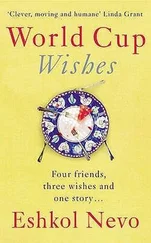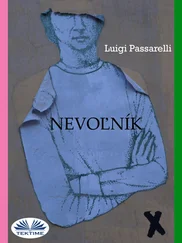Eshkol Nevo - Homesick
Здесь есть возможность читать онлайн «Eshkol Nevo - Homesick» весь текст электронной книги совершенно бесплатно (целиком полную версию без сокращений). В некоторых случаях можно слушать аудио, скачать через торрент в формате fb2 и присутствует краткое содержание. Год выпуска: 0101, ISBN: 0101, Издательство: Random House, Жанр: Современная проза, на английском языке. Описание произведения, (предисловие) а так же отзывы посетителей доступны на портале библиотеки ЛибКат.
- Название:Homesick
- Автор:
- Издательство:Random House
- Жанр:
- Год:0101
- ISBN:9781448180370
- Рейтинг книги:5 / 5. Голосов: 1
-
Избранное:Добавить в избранное
- Отзывы:
-
Ваша оценка:
- 100
- 1
- 2
- 3
- 4
- 5
Homesick: краткое содержание, описание и аннотация
Предлагаем к чтению аннотацию, описание, краткое содержание или предисловие (зависит от того, что написал сам автор книги «Homesick»). Если вы не нашли необходимую информацию о книге — напишите в комментариях, мы постараемся отыскать её.
Homesick
Homesick — читать онлайн бесплатно полную книгу (весь текст) целиком
Ниже представлен текст книги, разбитый по страницам. Система сохранения места последней прочитанной страницы, позволяет с удобством читать онлайн бесплатно книгу «Homesick», без необходимости каждый раз заново искать на чём Вы остановились. Поставьте закладку, и сможете в любой момент перейти на страницу, на которой закончили чтение.
Интервал:
Закладка:
Does anyone want to add anything? the teacher asked and looked around at the class. My elbow started to rise on its own, but I forced it back down on to my desk. Why bother. They won’t understand anyway. And besides, I’ll stutter. I’ll be better off waiting for backgammon with Amir, he has patience with what I’m thinking, even if it’s weird. And he always has something interesting to say. The day before yesterday, for instance, I told him that I think people who die aren’t really dead, but they live somewhere up there in the sky and watch us down here. He said that the first time he was on a plane going to America and they flew above the clouds, he really did look for the souls of dead people up there, or for God. And he didn’t find them. But maybe he didn’t look hard enough.
*
A red Egged bus is racing through the streets with a dull roar. It doesn’t pull into bus stops, its doesn’t open its door. It’s three a.m. The driver is Moshe Zakian. His passengers have long since gone home to bed. Moshe is the only one in the bus, clutching the wheel and staring straight ahead. No one is taking out money to pay his fare. No one is asking if the bus goes to here or to there.
He leaves the neighbourhood, turns right at the Mevasseret bridge and starts driving towards Tel Aviv. The road is empty, the air is sharp and darkness swallows up the trees flying past. After the descent to the Castel, he steps harder on the accelerator. A truck coming from the opposite direction has its full beams on. His face grim, Moshe turns his up his too: I’ll show him. The miniature Beitar menorah hanging from the rearview mirror jumps around like a football fan after a win. He presses the radio search button. The Voice of Music. The Voice of Ramallah. There’s nothing he wants to hear. He settles on Non-Stop Radio, Hebrew songs all night, including the greatest hits of this year. And still, the words Sima shot at him that night keep sounding in his brain. ‘Forget it’, ‘Let it go’, ‘Over my dead body’. Over and over again. You’d think he’d suggested something terrible. All he did was say that they opened a nice kindergarten up the street. Half price, twice the hours, good food for the kids to eat. Two of his friends had already transferred their children, and they said the kindergarten was good. Menachem, in Tiberias, thought they should. It wouldn’t hurt the boy to absorb some Judaism. The education he was getting now was a disgrace. Not to mention that the money they’d save would help them buy a bigger place. With a room for guests to stay. But Sima’s as stubborn as a mule. What exactly had she said? ‘For you, religion is a house, but it’s a prison for me.’ A difficult woman, as difficult as can be. Moshe fans the flames of his anger and slams his foot down. The red bus hurtles from Sha’ar Hagai and Latrun zooms past. OK, she doesn’t want to go to the rally with him. And she wants Liron to stay in the kindergarten he’s in. But is that a reason to talk about splitting up? We can talk. Compromise. Make up. What’ll the children think when they see their father in the living room in his underwear? Lilach’s a baby, but Liron’s old enough to understand what they said. And why should it be him, Moshe, who has to leave their bed? He’s the one with a bad back, and sleeping on the hard living-room sofa will make his bones crack.
Wait, his brow furrows in a frown. They say there’s a camera here, after the turn. Maybe I should slow down.
From the airport control tower, a light flashes. Once. Twice. The miniature Beitar menorah is still. A passing plane illuminates a cloud in the sky. Suddenly tired, suddenly limp, he decides not to go into Tel Aviv after all, and he knows why. When he was a child, he wandered away from his parents on Frishman beach and waited hours at the lifeguards’ station for them to come and get him. It’s dark in the city now, and he could lose his way. Besides, he has to be back at the wheel at seven the next morning. He has to be alert and steady. And God knows how late it is already. He takes the Gannot exit and starts driving back. More and more of the songs on the radio are in Rabin’s memory: Shlomo Artzi, Aviv Gefen, Yehuda Poliker singing sadly about taking back terrible things he said. Overcome with shame, Moshe remembers things he said during the fight, before he ran out. It was out of weakness that he’d said what he said. Sima knows how to twist words, she comes out on top in every little dispute. He understands perfectly, but when it comes to talking, well, it’s not exactly his strong point. As he approaches Latrun, he starts missing her. He sees her in his mind: in the delivery room, her plump, contented face, holding Lilach in her arms and kissing her. She is home for him. And he can’t breathe without her.
Eight years ago, he talked to her for the first time during break. On the way to the water fountain, he felt he was walking crookedly and thought he looked a mess. At Hanukkah, they started exchanging looks. At first, quick flashes, as if accidentally. Then she smiled. And he was hooked. He already knew every feature of her face. He already knew that her light-coloured jeans were a little too short and a beautiful part of her leg was exposed in the space between the edge of her trousers and the top of her socks. Based on her smile, he thought she might be interested, but how could he really tell? In any case, he felt that if he didn’t ask her out by Passover, his life would be hell. As for her, she finished drinking, wiped the last drop of water from the corner of her mouth and leaned against the concrete wall behind the fountain, in the shade. He walked the last few steps that separated them and practised one more time the words he’d spent the night before planning to say. But when he was standing in front of her, a gust of wind carried the thick, intoxicating scent of her hair to his nostrils, and instead of ‘I wanted to tell you that I think you’re very pretty’ or ‘You look beautiful in this light’, what came out of his mouth was, ‘Do you want to go to the cinema tomorrow night?’
He drove across the Mevesseret bridge and turned right.
The red bus is racing through the streets with a dull roar. It doesn’t pull into bus stops. It doesn’t open its door. It’s four-thirty in the morning. Soon, Moshe thinks, he’ll get into bed. He’ll hug Sima from behind, whisper sweet nothings in her ear, and she’ll forget the terrible things he said. If she wakes up, maybe they’ll go to look at the children together. There they’ll stand, hand in hand, in the kids’ room. He’ll remind her of how they once stood together at the water fountain in the playground. He won’t mention the kindergarten. He’ll be on his guard. Where’s the fire, tomorrow’s another day. She’ll admit she’s wrong after she hears what he has to say.
*
When the programme on Rabin is over, the men kiss at the door and my father takes all the sections of A-Nahar that were lying around the living room and goes to read them in bed, leaving only me and my mother there watching an Egyptian movie, and I want to say to her, Ya umi , I saw the house. I saw it with my own eyes. But I know that whenever anyone mentions the subject, it makes her ill. Forty years have passed, but the hurt she feels in her heart is as wet as the ground after rain.
A few weeks after the Six Day War ended, people started visiting their old homes. Quietly, not making a big fuss about it, they’d pile the whole family into a pickup, sometimes ten people in one small truck, and go. Back then, they didn’t have to pass five checkpoints every hundred metres like today.
Some people only found a pile of stones where their houses used to be. Some people, like the ones who lived in el-Castel, found their houses still there and in good condition, but Jews were living inside. They would stand and look at the houses from a distance, and if someone asked what they were looking for, they’d just turn around and leave.
Читать дальшеИнтервал:
Закладка:
Похожие книги на «Homesick»
Представляем Вашему вниманию похожие книги на «Homesick» списком для выбора. Мы отобрали схожую по названию и смыслу литературу в надежде предоставить читателям больше вариантов отыскать новые, интересные, ещё непрочитанные произведения.
Обсуждение, отзывы о книге «Homesick» и просто собственные мнения читателей. Оставьте ваши комментарии, напишите, что Вы думаете о произведении, его смысле или главных героях. Укажите что конкретно понравилось, а что нет, и почему Вы так считаете.












